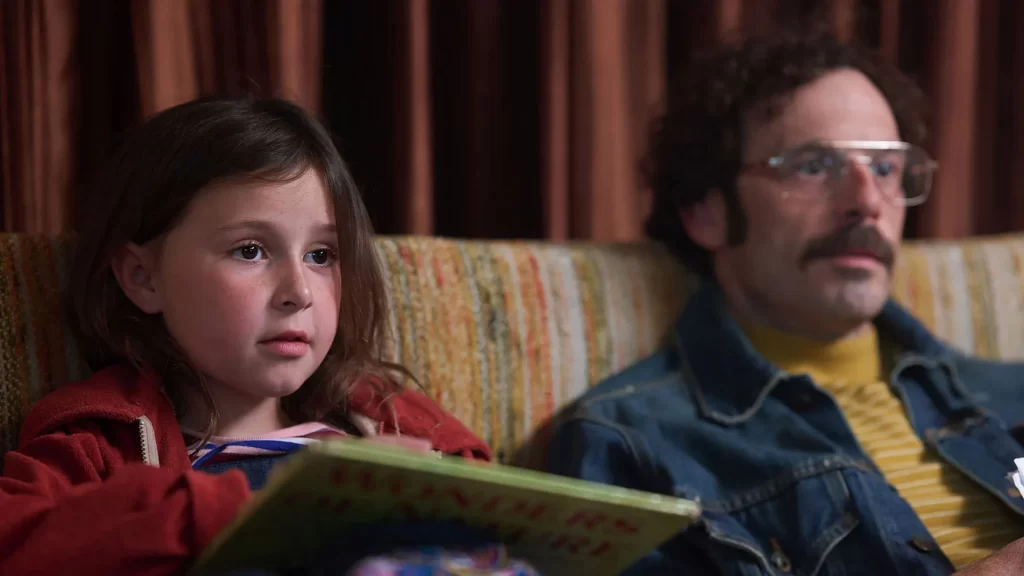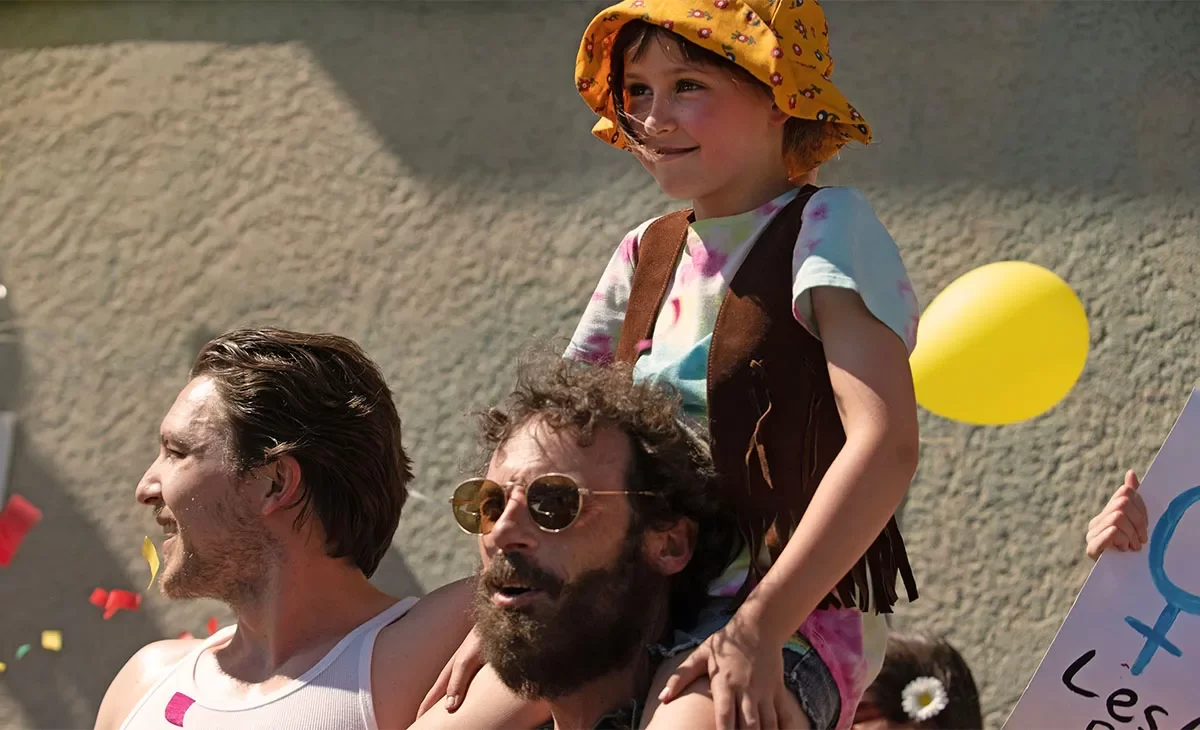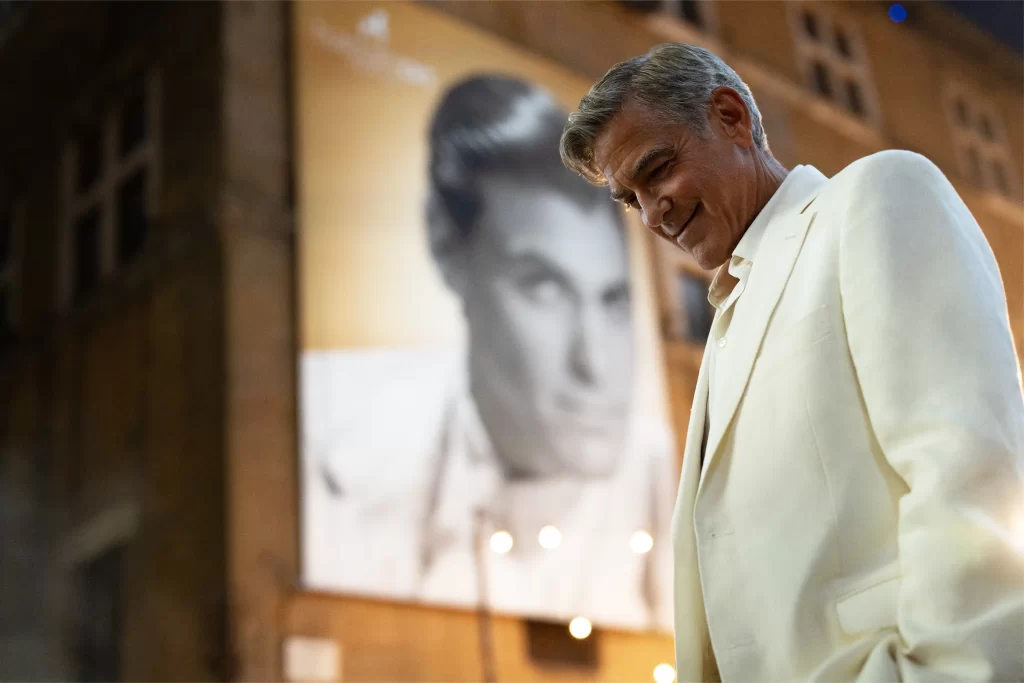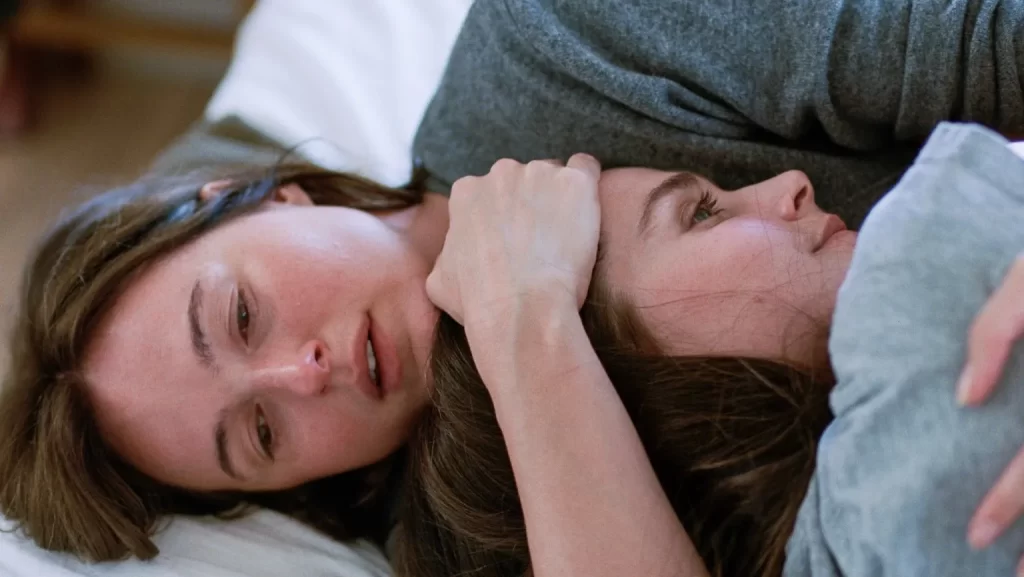Andrew Durham’s Fairyland opens, according to the on-screen text, in “The Midwest, 1974” – a perfect touch, a reminder of the kind of non-specificity with which those who lived much of their lives on the coasts regard everything that’s between them. (Full disclosure: I was born in “The Midwest,” in 1975.) The inciting event is a late night phone call, the kind of harsh, shrill ring that only comes bearing one kind of news. “Was my wife in the car?” asks Steve (Scoot McNairy, sporting a truly magnificent beard), and she was; her survivors include Steve, their daughter Alysia, and her mother (Geena Davis), who’s the kind of Midwestern matriarch who says, after the funeral, “I’m sorry we didn’t include the poem that you wrote, Steven. We didn’t want anything too personal .” Steve shrugs, and he and Alysia pack up the VW bug and head out west. The opening credits needle-drop is majestic: Blues Image’s “Ride Captain Ride,” encouraging the father and daughter, riding to the water’s edge in their mystery ship.
Fairyland is based on Alysia Abbott’s 2014 book, subtitled A Memoir of My Father. Her father was a poet, who said things like “Poetry doesn’t need to make sense – as long as it makes you feel something” and “It’s poetic and honorable to live the way we do. Money would just ruin us.” They land in Haight-Asbury, sharing space with a drug dealer and a drag queen; when they first lay eyes on Alysia’s room, it has a bare mattress on the floor and “KILL WHITEY” scrawled on the wall.
But their new environment will allow Steve to find a community of like-minded writers and artists; it will also allow him to finally find and explore his true self, because Steve is a gay man. His relationship with his daughter is therefore not an easy one. She calls him daddy and he calls her mouse, and there’s no question that he loves her, but he also loves to go out and meet guys and leave her at home with instructions not to open the door or stay up too late watching television. “You’re neglecting me!” she objects. “I’m teaching you to be independent!” he replies. Whatever the case, he’s in way over his head, and something clearly needs to change, but nothing does.
You don’t have to do much in the way of math to figure out where this is going. After settling into a Haight that is still running on the exhaust fumes of the Summer of Love, we steamroll ahead into the ‘80s, where the triumphs of gay liberation gives way to the fear and panic of the AIDS crisis. Some of the conflicts are less than subtle, and the early exposition concerning the “gay cancer” is especially clumsy. But the emotional truths of the third act, in which (spoiler alert, but come on) Steve gets sick and has to ask his now college-age daughter to put her life on hold and care for him, hit hard. “Do you know how hard it is for me to ask for things?” he asks her, and she does. But how can she care for this man, in this state, she asks (not unreasonably)? “I wasn’t ready to care for you when your mother died,” he tells her. “But I did.”

Among the picture’s many producers is Sofia Coppola, and Durham’s work here recalls her own debut film, The Virgin Suicides – not necessarily in its narrative (which is much more sprawling) but in its vibes, the way it simultaneously bathes in ‘70s (and ‘80s) nostalgia, and punctures it. Durham works hard to capture the vibrance of the scene – perhaps too hard, as it occasionally feels a bit too studied and preserved, but he seems to know his way around these neighborhoods, nightclubs, and art galleries.
So do the performers; as the young adult Alysia, Emilia Jones beautifully puts across the mercurial nature of the moody teenager, and how that prickliness can give way to genuine maturity and gravitas. Nessa Dougherty has nearly as tough a job on her hands as the younger Alysia, and handles it with grace beyond her years. And McNairy, long one of our most valuable (and invisible) character actors, finally gets the leading-man showcase he deserves. He’s wonderful, particularly in a long, powerful scene near the film’s (and his character’s) end when he finally, really opens up to his daughter, openly and plainly, about his shortcomings as a parent.
Fairyland eventually transcends the cliches of the sick-parent drama by revealing its true subject: it’s about a family getting to a point where they can’t let themselves lie to each other anymore. “When you keep a secret for so long, it becomes a part of you,” she explains, and this is a sensitive chronicle of a complicated bond.
B+
“Fairyland” is out this weekend in limited release.



